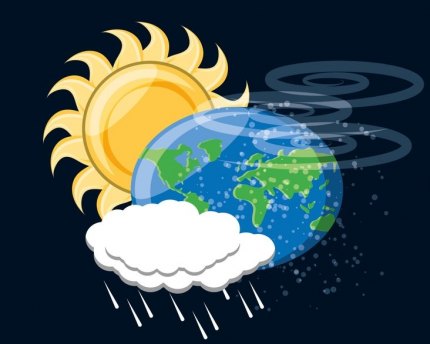
More and more, researchers document the impact of climate change. Here are four examples:
Hottest month ever: July was the hottest month ever recorded. "The average global temperature in July was 1.71 degrees Fahrenheit above the 20th-century average of 60.4 degrees, making it the hottest July in the 140-year record," according to scientists at the National Oceanic and Atmospheric Administration's National Centers for Environmental Information. "The record warmth also shrank Arctic and Antarctic sea ice to historic lows."
Intensifying monsoons: A study by the U.S. Department of Agriculture shows that in recent decades, monsoons have become more intense in the Southwestern U.S.
"Monsoon rains—highly localized bursts of rain—have become stronger since the 1970s, meaning the same amount of rain falls in a shorter amount of time—by 6 to 11 percent," according to the department's Agricultural Research Service. The service defines monsoons as intense downpours that strike within less than an hour. Temperature has everything to do with these storms, as they are "usually the result of strong convection or up-welling air currents due to the difference in temperature between the earth's hot surface and the cooler atmosphere." Scientists attribute the change to the warming climate.
A link between ice melt and human activity: A new study reveals a direct link between human-induced global warming and melting of the West Antarctic Ice Sheet, according to the British Antarctic Society. "The research team combined satellite observations and climate model simulations to understand how winds over the ocean near West Antarctica have changed since the 1920s in response to rising greenhouse gas concentrations," an article on the society's website explains. "Their investigation reveals that human-induced climate change has caused a long-term change in the winds, and that warm ocean conditions have gradually become more prevalent as a result."
Animals are adapting -- but not quickly enough. Scientists have already seen evidence of changes in the animal world. A 2017 study in California found that birds were adapting to rising temperatures by breeding earlier than they did a century ago, according to University of California Berkeley. Researchers studied nesting data recorded in the early 1900s with similar recent data for more than 200 species of birds and found that they generally breed five to 12 days earlier than they did 75 to 100 years ago.
On the other hand, a new study in Nature Communications concludes that modern plants and animals may not be able to adapt fast enough to survive climate change. "We did not find evidence for adaptive change in all species, and even populations undergoing adaptive change may do so at a pace that does not guarantee their persistence," the article concludes.
Related:
Will climate change limit skiing?
Like us on Facebook and tell us what you think.